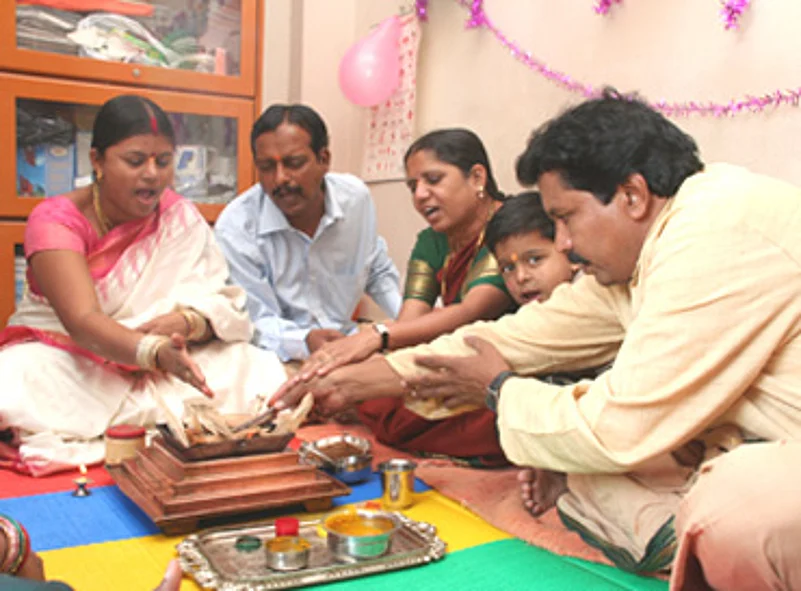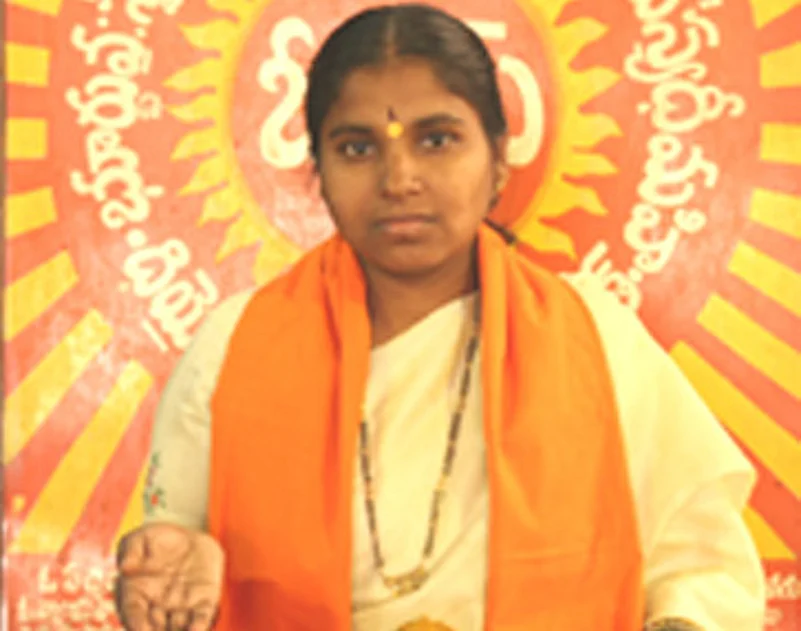
Thirty-one-year-old Vaishnavi Devi, who has been a purohit since 1997, says she is usually flooded with compliments after performing a marriage ceremony. "When a couple ties the knot, they imbibe the true meaning of marriage if each and every mantra is explained to them." A teacher of Hindi and Sanskrit at the Bharatiya Vidya Bhavan School, Vaishnavi feels the growing acceptance of women as purohits has been fuelled by Hyderabad's increasingly cosmopolitan culture. "Several Punjabi and Rajasthani families invite me to conduct holy yagnas, marriages and naming ceremonies. Mahila purohits are more involved and effective, and this endears them to people," observes Vaishnavi. She adds that young people too often seek out women purohits—not only as an expression of their belief in gender equality, but also because they "want to be different". But, she adds, "While the tag of being 'different' does help our cause, the fact that we don't just think of it as a profession but as a means to deliver our culture to the next generation also helps."
Savita, 26, who has been a purohit for two years, has added the title 'Acharya' after doing a Masters in the Vedas and Sanskrit. "Traditional pandits had declared the Vedas out of reach for women. So when we go out and conduct holy rituals, it has also got something to do with women exercising their rights." Savita has travelled to Holland, Germany and Russia to conduct marriages, and feels what she has to offer is a happy mix of modern attitudes and traditional culture.
Another young purohit, Maitreyee, says she had initially come up against some prejudices. "People would often try to find out if I was a Brahmin. I would tell them that it is karma that makes one's caste," the 26-year-old says. A lecturer in Sanskrit, Maitreyee has a busy schedule, with at least 10 ceremonies a month marking her priestly calendar. Jyotisree, 32, has also often faced prejudices regarding her gender and caste, but says that she and other women purohits have learnt to take such attitudes in their stride. "Of course, people who are neck-deep in traditional beliefs tend to ask these questions. But then, answers follow only when questions are raised, and obstacles enable us to emerge stronger."

Jyotisree says she often faces gender and caste biases
Dalit rights activist and author of Why I Am Not A Hindu, Kancha Ilaiah, however, feels women purohits are groomed by institutions like Arya Samaj for dubious reasons. "Turning non-Brahmin women into Sanskrit-chanting vegetarians cannot in any way be termed progress. In trying to follow in the path of Brahmins, these women are actually regressing," says Ilaiah. "I liken the Arya Samaj luring these women into their fold to 'Hitlerite Aryanism' where women were indoctrinated into Nazi values."
V. Sandhya, state secretary of the Progressive Organisation of Women, also sounds a cynical note. "I know some of these women purohits. They are progressive and ought to be appreciated for breaking the barriers of the caste system and patriarchy. But at the same time, I feel they are succumbing to the same value system that sought to suppress them," she comments.
Arya Samaj state president Vittal Rao understandably takes a different view and says that when women breach ossified and hitherto sacrosanct caste barriers and perform all Hindu rituals—from naming ceremonies to the last rites—it is evidence of progress and acceptance of women as equals in every path of life.
M. Mohanachari, an electronics engineer at Hindustan Aeronautics Limited, who recently got a Vishwakarma yagna performed at his home by Savita, brushes aside all arguments and offers a simpler reason for choosing a woman purohit. "My wife and I chose Savita because we felt her knowledge of the Vedic rituals was perfect. Most of us need purohits at some point, so why not someone genuinely qualified? Gender does not matter." Vaishnavi, Savita and their tribe would say tathastu to that.


























